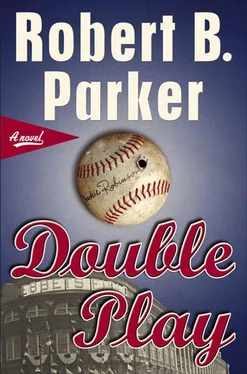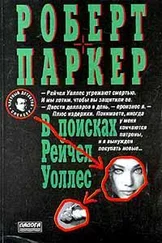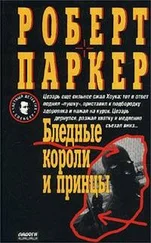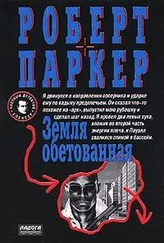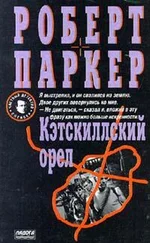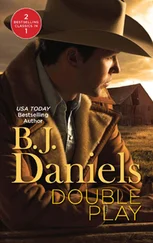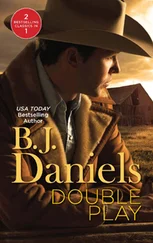“Not at all,” he said.
She nodded at a white satin chair near the chaise.
“Please,” she said. “Sit down. Tell me why you’re here.”
She finished her glass and took a bottle from the windowsill and poured it full again.
“It helps with the pain,” she said.
“Are you ill?” Burke said.
“I think so,” she said.
“I’m sorry,” Burke said.
“Life,” she said. “Life makes one ill sooner or later.”
“It can,” Burke said. “Can’t it.”
“Why did you say you came here?”
“I’m looking for Lauren,” Burke said.
“My daughter.”
“Yes.”
The woman nodded. They were quiet.
“Would you like some sherry?” the woman said.
“No thanks.”
The woman nodded again and drank.
“Do you know where Lauren is?” Burke said.
“My daughter. She grew up into a very beautiful woman, don’t you think?”
“Do you know where I can find her?” Burke said.
“She’s with her husband.”
“Do you know where they live?” Burke said.
“She lives with him,” the woman said. “With Louis.”
“Where does Louis live?” Burke said.
The woman drank some more sherry. She gestured vaguely toward the window.
“Out there,” she said.
“Out there?”
“Yes.”
She drank again and refilled her glass. The wine didn’t seem to affect her. Burke wished that it would.
“You know I never go out there,” the woman said. “I can see it from here, and I like it. But I never go out there.”
“Do you know an address for Lauren?” Burke said.
“Do you go out there?” she said.
“Sometimes,” Burke said.
He glanced at the maid standing by the door. The maid gestured to him to join her.
“Excuse me, ma’am,” Burke said.
He stood and walked to the maid. She looked at him in the impervious way Negroes looked at whites.
“She don’t know,” the maid said softly. “She don’t know this address.”
“You know?” Burke said.
“How much?”
“I got another C-note,” Burke said.
The maid put her hand out. Burke took out the hundred and gave it to her. She folded it neatly and put it in her apron pocket.
“I write it down for you,” she said.
Burke went back to the woman who had once been beautiful.
“It’s been very nice talking to you, ma’am.”
“Oh,” she said. “Yes. Thanks for coming.”
She put out her hand; Burke took it for a moment. Then he let it go and straightened and left the room. On his way out the maid gave him a slip of paper with an address.
The house was in Connecticut in the Litchfield Hills, maybe two hours from New York. Burke sat with Cash in the dark car looking at the sweep of the front lawn. It was raining hard again.
“Big house right there,” Cash said. “Top of the lawn.”
“No gate,” Burke said.
“Doesn’t mean no guards,” Cash said.
“Frank Boucicault will have guards,” Burke said. “We’re looking for the carriage house.”
“The happy couple,” Cash said.
Burke nodded without speaking. With the car engine off, the wipers weren’t going, and the rain had streaked the windshield. Burke rolled down his side window enough to see out, squinting against the rain, looking for the carriage house.
“If it was for carriages,” Burke said, “it would be at the end of the driveway.”
“Want to drive in?” Cash said.
“No,” Burke said, “too bold. We’ll walk.”
“Maybe rain will keep everybody inside,” Cash said.
“Maybe,” Burke said.
Burke rolled up his window and got out of the car. Both men wore raincoats and hats. Burke unlocked the trunk of the car and Cash took out a Thompson. Burke hadn’t seen one since Guadalcanal. Sheltered by the trunk lid, Cash put the twenty-round magazine in place, tapped the bottom with his palm to seat it, worked the action once to put a .45 round up into the chamber. He pressed the gun, muzzle down, against his thigh, the skirts of his coat partly protecting the gun from the rain. Burke closed the trunk and the two men started up the driveway in the darkness and the heavy rain. There were lights on in the big house. But no movement. As they reached the top of the low upslope, the drive turned a gradual right behind the house. They followed it, hunched against the hard rain. Ahead, among some trees, barely visible in the murk, was a two-story building with a cupola on top. There was a shapeless blur of light. When they got close they could see it was a seeping through some drawn curtains in a first-floor window. The entry door had been cut into the vertical planking of the big carriage house doors. Burke tried the handle. It was locked. He knocked on the door. A voice sounded inside.
Burke thought it might have said, “Who is it?”
“Your father,” Burke said, in a low voice he hoped would be hard to identify.
There was a moment and then Burke heard the dead bolt turn. The door opened a ways and Burke hit it with his shoulder. It burst open and caught on the security chain bolt. He pulled back. Cash joined him and they both lunged against it. The chain bolt screws tore out of the doorjamb and the door burst open. Wearing a Chinese silk dressing gown, Louis Boucicault had turned away from the door toward the heavy mahogany sideboard against the right-hand wall. Cash was in first. He put the muzzle of the Thompson up snug under Boucicault’s chin.
“Still,” Cash said. “Really still.”
There was a table in the middle of the room with an ice bucket, some lemons, and a bottle of gin. Wearing a Chinese silk dressing gown that matched Louis’s, Lauren sat with a glass in her hand. Everything seemed to have frozen. There was fruit on the table, and some cheese and some sort of pâté and a silver bowl of crackers. Burke closed the door behind him and put his gun away inside his raincoat. He went to the sideboard and opened the top drawer and took out a nickel-plated, pearl-handled .32 caliber revolver.
“Cute,” Burke said and slipped it into his coat pocket.
Then he walked to Boucicault and patted him down. He stepped back and pointed at the empty second chair at the table.
“Sit,” he said.
Frozen with the muzzle of the submachine gun pressing up under his chin, Boucicault shifted his eyes to Cash. Cash grinned at him and moved the muzzle.
“Do what he tells you,” Cash said.
Lauren still had neither moved nor spoken. As time began to move at a more normal speed, Burke realized the radio was on, a big Capehart. They were listening to “The Life of Reilly.”
Louis sat. He drank some gin. Cash pulled an uncomfortable-looking ladder-back chair from the corner past the sideboard, and dragged it near the table, and sat with the tommy gun in his lap.
“How’d you get this far?” Louis said.
He was trying to keep his voice steady.
“Weather’s bad,” Burke said. “Can you call your father up at the house?”
“Yes.”
“Call him. Tell him your situation. Tell him he and I need to talk. Tell him if anything happens you go first.”
Lauren slowly raised her glass and sipped some gin. When she had drunk, she lowered the glass, but she did not put it down.
“You want my father to come down here?”
“Yes.”
“Now?”
“Yes.”
“What if he won’t come?”
“You’re dead,” Burke said.
Burke was aware of the radio. William Bendix. Laughter. The rain was hard on the windows. Carefully, Louis reached for the phone beside the table. He dialed and spoke into it and hung up.
“He’ll be right down,” Louis said.
Burke went to the door and opened it, the rain slanted in onto the polished floor. Cash got up and went to the corner of the room, between the sideboard and the wall, keeping the Thompson pointed at Louis.
Читать дальше
